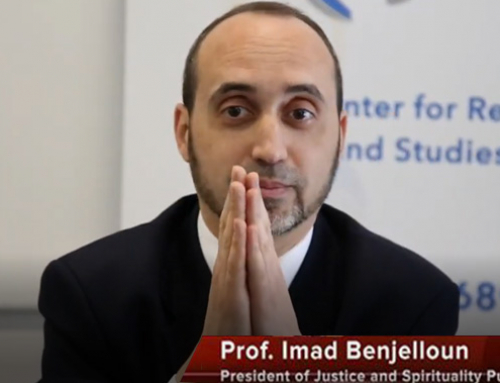Redouane Nour
July 13, 2023
Shifting from a Worldly Affairs Mode to a Worship Mode
So how can you carry out all your obligations in such a limited lifespan so as to attain the bliss of this life and the Hereafter? In Sūrat an-Naḥl (16:97), the Lord (magnified be He) explains:
To those who work deeds of righteousness, men or women, and have faith, We will give a life that is good and pure, and We will bestow on them their reward according to the best of their actions.
It is thus by faith and righteous deeds that felicity may be attained. As for faith, the Messenger (God bless him and grant him peace) has taught us that it is made up of seventy branches. Among these branches of faith(1) are certain acts that the believer(2) must perform at least once in their lifetime (such as the Pilgrimage); acts that are mandatory once a year (the Ramadan fast); acts that are prescribed at regular intervals (the ritual prayer [aṣ-ṣalāh] and ritual charity [az-zakāt]); acts that are mandated under particular circumstances (visiting the sick, paying last honors to the deceased, clearing away a public pathway that has been obstructed); acts that relate to individual virtues (modesty); and finally, acts that should be made into firmly-established habits (chanting the testimony of faith that “there is no god but God” [lā ilāha illallāh]).
The believer should cultivate habits that allow them to spend their time in worship and jihād (3)rather than frivolous worldly pursuits. As a gnostic(4) once taught:
If anyone fails, for a single day of their lifespan, to uphold the rights of the people, fulfil the duties of their faith, gain in [spiritual] honor, earn greater merit, perform a virtuous deed, or acquire knowledge, they will deeply regret having ever lived such a day.
Of course, you should set aside time for your family and your schooling or job; but under no circumstances should you let your worldly schedule prevent you from establishing the ritual prayer in congregation as much as you can. If there is not a mosque close by, you should gather those around you in your workplace or school and have one person act as the caller to prayer (mu›adhdhin) and another the imam to lead the worship.
What should we start and end our day with? How can we effectively shift from our worldly mode to a worship mode?
————————————————-
(1) TN: The branches of faith (shu‹ab al-īmān) are those acts of worship (physical, moral, intellectual, and spiritual) that enable our journey toward spiritual excellence (iḥsān). Many scholars of ḥadīth, such as al-Bayhaqī and al-Ḥulaymī, have enumerated these branches as being sixty or seventy in number. In his Prophetic Method (al-Minhāj an-Nabawī), Imām Abdessalam Yassine has arranged them into the ten virtues (al-khiṣāl al-‹ashr) for training the believers to ascend the three stages of the faith (islām, īmān, iḥsān), this training being a sine qua non for the task of uniting Muslims worldwide.
(2) TN: By “believer” is meant not the ordinary Muslim who merely practices the five pillars of Islam, but is one who seeks to embody the branches of faith and thence aspires to iḥsān, spiritual excellence.
(3) TN: Often mistranslated as “holy war,” jihād refers to the effort that the Muslim, man or woman, exerts to serve God as an individual or as a member of the community in all spheres of life.
(4) TN: A gnostic – literally, a “knower of God” (‹ārif billāh) – is a Sufi master or spiritual scholar who is firmly grounded in the quintessence of Islamic Law (al-Ḥaqīqa). In chapter 25, verse 59 of the Qur›ān, God (exalted be He) says: “God, the Most Gracious – ask those expertly informed of Him.”
The Day and Night Schedule of the Believer, P: 9-11






